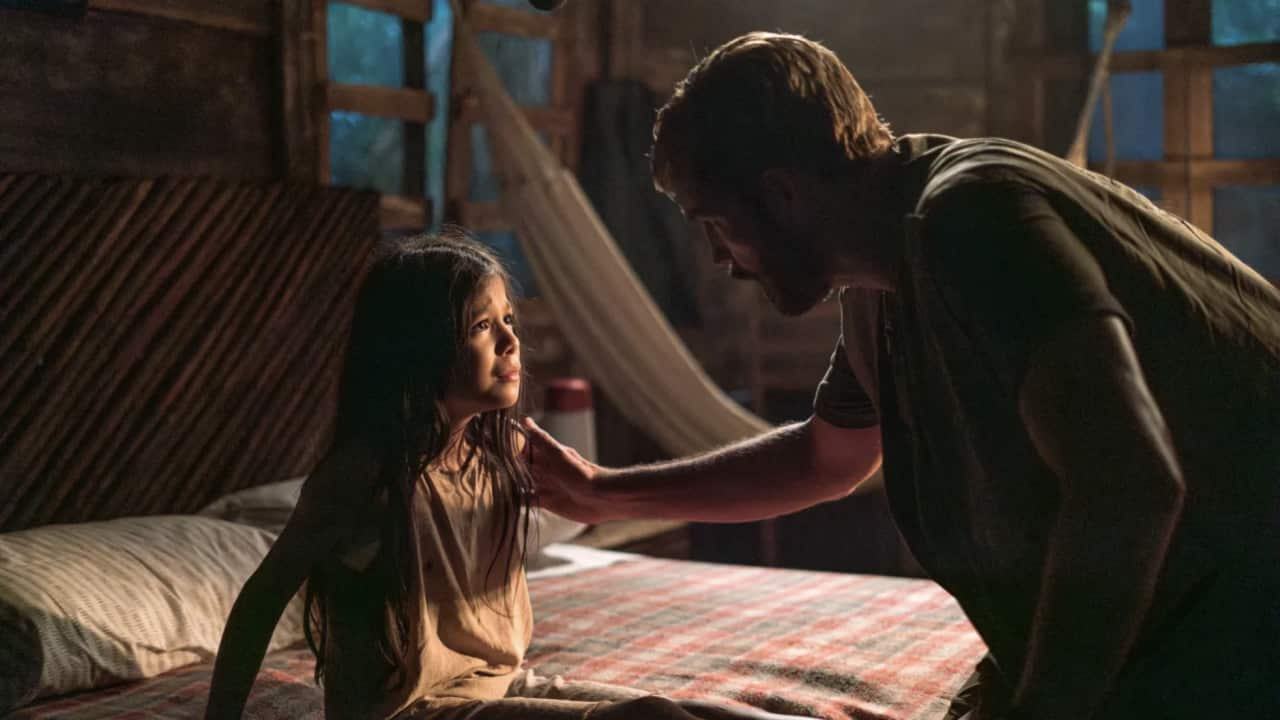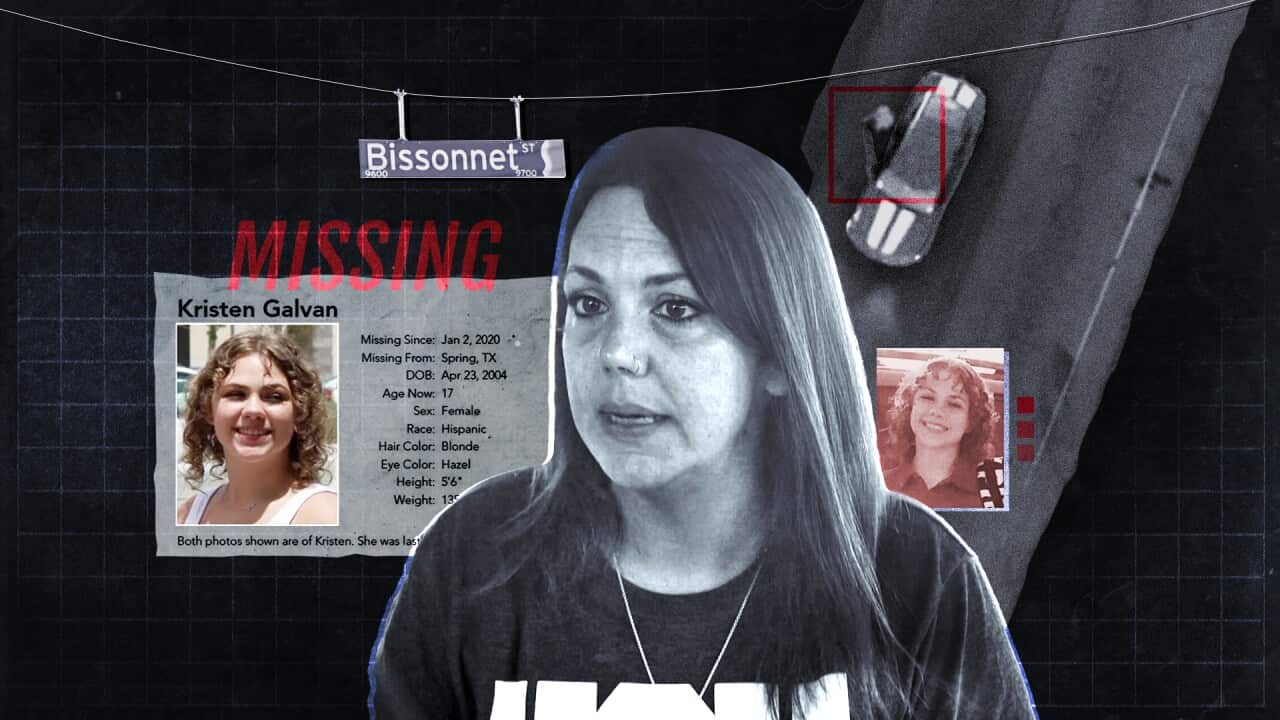The action-thriller Sound of Freedom has now been released in Australian cinemas - but its arrival is riddled with baggage.
It was a sleeper hit, initially overshadowed by and when it was first released last month. Now, it's one of the highest-grossing movies released in the US this year.
Jim Caviezel (who played Jesus in Mel Gibson's movie The Passion of the Christ), stars as Tim Ballard, the real-life US Homeland Security Agent who creates a charity to combat child traffickers.
But for many reasons, separate from the heavy subject matter at the focus of the film, the movie is leaving some people uncomfortable.
The movie is now available across cinemas in Australia - with Dendy Cinemas (co-owned by Mel Gibson) also screening the movie, citing “overwhelming demand”.
The first controversy: The QAnon support
The movie was shot in 2018, at a time was starting to gain traction.
But its script was written in 2015, well before the movement's emergence in 2017, its writer and director Alejandro Monteverde told entertainment news publication Variety.
While the film, made by Angel Studios, tells a non-partisan story and doesn't reference QAnon, believers of the conspiracy theory have latched onto the film, promoting it for their own agenda.
QAnon followers believe that left-leaning elites in government, Hollywood stars and billionaires run a paedophile and human trafficking ring. They also believe that these people are harvesting an adrenaline-like substance from children to attain eternal life. Former US President Donald Trump is also thought by followers to be waging a secret battle against this “deep state” scheme.
It hasn't helped that lead actor Caviezel has repeated several QAnon terms on conservative talk shows. One word is 'adrenochroming', a false term used to describe the extraction of a substance from child victims to harvest the 'elixir of youth'. He has also used other language of the movement ("a big storm is coming") and in 2021, attended a QAnon-adjacent conference.
Aside from QAnon believers, the movie is being championed by other notable conservative figures like Trump, who hosted a viewing party at his golf course with Caviezel and the agent who inspired his role in attendance.
Monteverde, who did not attend, said the political ties from others were hurting his film, and he prefers to keep his distance.
The second controversy: Misleading portrayals of child trafficking
In Sound of Freedom, Caviezel as Ballard takes on a crime syndicate in Colombia after children are trafficked by virtual strangers.
This depiction has stoked concern from human and child trafficking experts who say while people are trafficked this way, it's not the typical way it's done.
World's Children, a charity supporting vulnerable children, says poor families with financial struggles and debt, and kids who have run away or are homeless are most at risk of being trafficked. Save the Children, the international humanitarian NGO focused on children, says on its website it's a “myth” that traffickers target victims they don’t know.
“A majority of the time, victims are trafficked by someone they know, such as a friend, family member or romantic partner,” it says.
In Australia, Lina Garcia, the Senior Manager for the anti-trafficking response at the Australian Red Cross, told the Feed while information is limited, “generally, children and young people are more likely to be exploited by people they know, and not complete strangers.
"It might happen, not only in businesses and operations but also in the context of the family home. And I think that that is very important to highlight," she added.
Now, experts are concerned the hype around this film could actually prevent people from spotting the more common - actually foreseeable - warning signs.
Elizabeth Campbell, co-director of the University of Michigan's Human Trafficking Clinic, told US news organisation NPR: "By doing that, I think we make actual victims of human trafficking more invisible and more vulnerable to exploitation."
The UN’s 2022 Global Report on Trafficking in Persons, which is based on 51,700 “detected” victims in 166 countries in 2020, highlighted that individuals in conflict zones are especially vulnerable to traffickers who exploit refugees’ urgency to leave the country.
The UN report also pointed out that those with economic strains and those who are displaced - often by conflict or climate - are other people and children who become targets.
While it found a global decrease in detected cases - which could come down to the pandemic limiting movements or a drop in detection - the cohort of male victims has still been growing over the past decade.
In Colombia, the US Department of State's 2023 Trafficking Report found: "Traffickers lure victims with fraudulent employment opportunities to later exploit them in sex trafficking and forced labor."
Traffickers in Colombia: "recruit vulnerable women and girls, mostly Colombians and displaced Venezuelans, into "webcam modelling," an unregulated market which continues to grow."
According to the report, authorities did not include the forced recruitment of children into illegal armed groups as forced labour trafficking or sex trafficking.
The third controversy: One of the donors was charged with child kidnapping
Explaining this one requires some context.
The Sound of Freedom was independently filmed in 2018, on a budget of about US$14.5m ($22.5m), but was delayed when its distributor, 21st Century Fox, was bought by Disney in 2019.
The COVID-19 pandemic exacerbated the delay, and then in 2023, distribution rights were acquired by Angel Studios.

Child-trafficking experts are saying the anti-trafficking film could do more harm than good. Credit: Angel Studios
To raise the US$5m ($7.8m) the company needed to distribute and market the film, it crowdfunded the money from 'angel' investors.
One of the film's many investors, Fabian Marta, was arrested on 23 July and charged as an accessory for child kidnapping in the US state of Missouri, NewsWeek reported. While the details of the case are not public, this charge carries a penalty of 10 to 30 years in prison or life imprisonment.
The fourth controversy: The Pay-It-Forward sales are misleading
It's true the film has been unexpectedly popular, grossing more than the latest Mission: Impossible and Indiana Jones movies in the US.
But some of these sales are being called into question.
In the film's closing credits, the hero of the film, Caviezel, asks viewers to “” by buying someone else a ticket. It's unclear how many of those tickets actually translated into actual views, but people online have noticed that the theatres have sometimes been more vacant than online seat availability suggests.
On the Angel Studios site, under the heading "How can I join the fight to end child trafficking?" the creators say: "Seeing the film is the first step in spreading awareness about child trafficking," before suggesting to pay it forward or claim a free ticket.
Paying it forward will help you "join a historical movement to promote stories that amplify light," it writes.
In the last paragraph, there is a link giving viewers more information on how to help combat child trafficking (other than paying it forward).
Answering another question asking what will happen to extra funds, if tickets aren't claimed, Angel Studios said on its website: "Remaining funds from Pay it Forward may also be used to help the filmmaker create additional content."
This story has been updated.
If you or someone you know is impacted by sexual assault/sexual violence, call 1800RESPECT on 1800 737 732 or visit
In an emergency, call 000.












